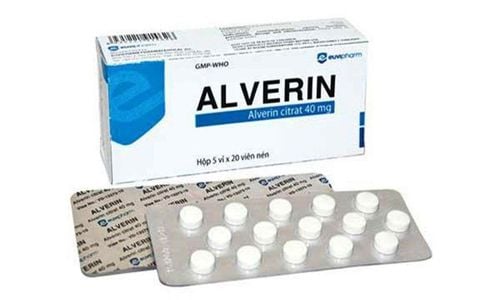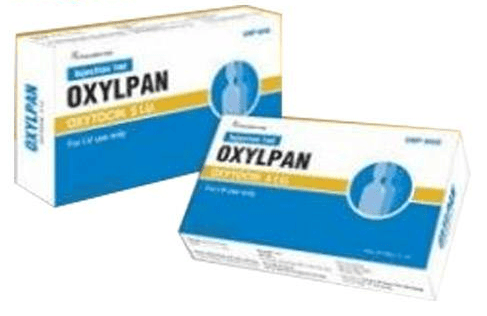This is an automatically translated article.
The article was consulted with Specialist II Chung Thi Mong Thuy - Pediatrician - Neonatologist - Department of Pediatrics - Neonatal, Vinmec Central Park International General Hospital.Gastroesophageal reflux is a very common condition in infants, especially premature babies. Mothers sometimes find that babies spit up more or less or often wheeze after each feeding. This is vomiting of food or milk after eating or drinking. Symptoms of the disease in children will vary from child to child and depend on age. Therefore, parents need to identify the symptoms of gastroesophageal reflux in infants so that they can intervene promptly and properly handle it, avoiding serious effects on the child.
1. What is infant gastroesophageal reflux?
Gastroesophageal reflux in infants occurs when food backs up into the esophagus from the stomach with substances such as food, milk, gastric juices, and bile salts. In most cases the disease will subside as the child gets older. The condition is rarely serious and becomes less common as the child gets older. However, this is not normal for babies over 18 months.In infants, the ring of muscle between the esophagus and stomach - the lower esophageal sphincter (LES) has not yet fully matured. That makes the stomach more prone to reflux. The lower esophageal sphincter (LES) opens only when the child swallows and will close tightly at other times.
Contributing factors to the cause of gastroesophageal reflux in children include:
Too much food causes the stomach to stretch too much The distance between meals is too close, the food is not fully digested. Completely liquid diet Babies lie down for too long so food stays in their stomachs for too long Premature babies have acid reflux Sometimes, reflux in babies can be caused by a number of serious effects, such as: :
Acid reflux irritates and damages the lining of the esophagus Pyloric stenosis : A narrowed valve between the stomach and small intestine that prevents empty stomach contents from entering the small intestine. Food Intolerance: A wide range of proteins in cow's milk is the most common factor Eosinophilic esophagitis Meckel's diverticulum causes food retention. Duodenal diaphragm...
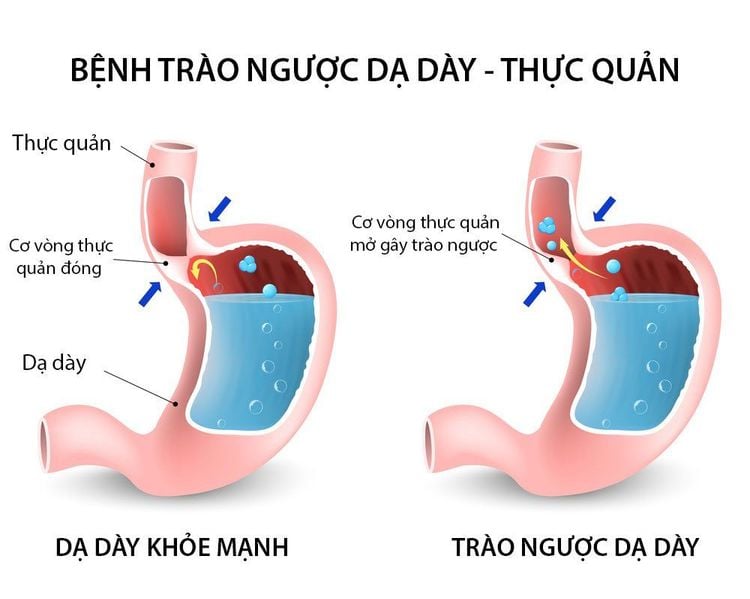
The formation of gastroesophageal reflux disease
2. Gastroesophageal reflux symptoms in infants
Gastroesophageal reflux in infants is not a cause for concern. It is unusual for the stomach to contain acid that irritates the throat or esophagus and causes an uncomfortable burning sensation in children with signs and symptoms of illness.In case of the following abnormal symptoms, the child should be seen by a doctor
Not gaining weight Frequent crying. Vomiting a lot. Green or yellow liquid vomit. The vomit contains blood or other ingredients that are the same color as coffee grounds There is blood in the stools Shortness of breath or a chronic cough Unusual irritation after eating.

3. Diagnosis and treatment of gastroesophageal reflux disease in infants
3.1. Diagnosis The doctor will examine the child's physical appearance and symptoms. If the child is healthy and developing as expected, then testing is not necessary. But if the child has abnormal signs, it is necessary to recommend testing to check for an accurate diagnosis.Ultrasound: This imaging test can detect pyloric stenosis, diverticula or duodenal septum... Blood and urine tests can help identify or rule out possible causes. recurrent vomiting and no weight gain. Esophageal pH measurement: Helps the doctor measure the acidity in the child's esophagus. The doctor uses a thin tube through the nose or mouth and into the esophagus. These tubes are attached to an acidity monitor. Contrast X-rays: These images can detect abnormalities in the digestive tract, such as an obstruction. Your child will be given contrast fluid (barium) to help monitor the process more clearly. Colonoscopy: The doctor will use a special tube with a camera on the probe and pass it through the mouth and esophagus, stomach, and first part of the small intestine.
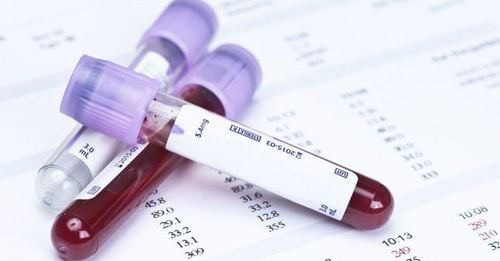
Give your child smaller meals and space them out at 2.5- 3 hours/time Help children burp after each feeding. Head high after each meal for 20-30 minutes. Eliminate dairy products, beef or eggs from the diet if allergies are suspected. Switch to hypoallergenic formula if you suspect your baby is allergic to cow's milk. Use the right pacifier for the child's age. A nipple that is too large or too small can interfere with your baby's swallowing of air or food. Using medication to treat GERD in infants is not routinely recommended for children. However, this method can still be used for children with signs such as: poor weight gain, evidence of an inflamed esophagus, chronic asthma.... These drugs can block absorption. calcium and iron absorption, and increase the risk of intestinal and respiratory infections.
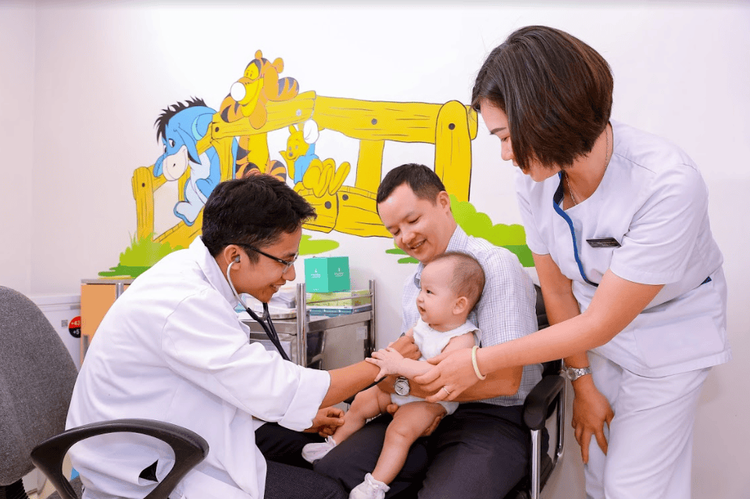
When seeing that their child has signs of gastroesophageal reflux, parents can take the child to Vinmec International General Hospital for examination, diagnosis and treatment. Vinmec has a team of well-trained pediatricians, highly qualified and experienced in examining and treating diseases of infants, children and children under 16 years old. Vinmec is equipped with a system of modern and advanced medical supplies and professional service quality that will support high efficiency in diagnosis and treatment of patients.
Please dial HOTLINE for more information or register for an appointment HERE. Download MyVinmec app to make appointments faster and to manage your bookings easily.
Recommended video:Advice: Recognizing and handling gastroesophageal reflux in children





